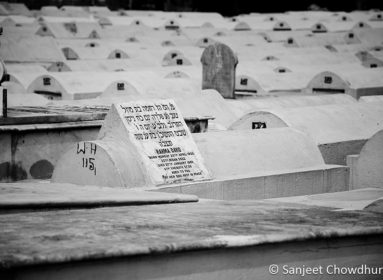
By Rabbi Tzvi Hersh Weinreb
Many years ago, my wife and I were living in a suburb of Washington, D.C., where I was pursuing postgraduate studies at the Washington School of Psychiatry. To help make ends meet, I taught adult education classes for the local Jewish Federation. Although the prospective students had high levels of secular education, their Jewish educations ranged from considerable to negligible. It would be my task to create a curriculum which would be challenging intellectually, but which would also meet the needs of a religiously very diverse group. I created a course entitled “The Very Last Mitzvah in the Torah.”
More than four decades later, I found myself sitting and reminiscing with four members of that group and learning that lifelong friendships had developed between all the members of the class. Almost in unison, they recited the verse that was the core of the entire course. This verse is to be found in this week’s Torah portion, Parshat Vayelech (Deuteronomy 31:1-30). It reads, “Write down this song and teach it to the people of Israel; put it in their mouths…” They went on to recall the difficulty I had convincing the class that these words were a command to all Jews, for all future generations, to write a Torah scroll for themselves, or to have one written for them.
One of them, let’s call him Sheldon, said, “When I signed up for the class, I did so in a state of total ignorance of Judaism. I had moved to Washington and was alone and lonely. So, I signed up for the course more for companionship than for scholarship. I soon changed my attitude and remember asking you about the best way to begin to gain more knowledge about my faith. You referred to the verse we all just recited and told me that the best thing I could do was to take any translation of the Chumash, the Five Books of Moses, and simply read it through from beginning to end. I did so, and I was hooked.”
The second fellow to chime in, Dan, elaborated on Sheldon’s remarks. “I want you to know that ever since that first exposure to the Chumash, Sheldon has never failed to complete the entire book every year, usually with a different rabbinic commentary each year. At our meetings, he inevitably catches us up with his latest Torah insights.”
Dan then talked a bit about the direction in which this one verse in our parsha had taken him as well. “I remember how you had asked us to imagine the Jewish people living for a long period of time with no knowledge of the Torah, without even an awareness of its existence. You read to us the story in the Book of Kings II, chapters 22 and 23, in which the Torah was rediscovered during the reign of King Josiah, after having been forgotten for more than a generation. I became interested then, not only in the Five Books of Moses, but in all of the Bible. I eventually earned a doctorate in biblical history and have written more than one book on the subject.”
Indeed, I had read one of Dan’s books.
The third person in the group remembered my telling them that I often donated many of my books to libraries for others to study. “You taught us that one of the Medieval rabbinic authorities, perhaps Rabbenu Asher, had ruled that if one distributed any sacred book to others to read and study, it was as if he had written his own Torah scroll,” he said. “I don’t know whether or not you have ever written a Torah scroll, but you fulfilled the last mitzvah of the Torah by sharing your books with others.”
Said group member number four: “There is one thing that you said that remained with me all these years. I was then a student of musicology, a cherished subject that never eventuated in a career for me. But I was intrigued by a statement you quoted from a man you identified as one of your most inspiring rabbinic figures. Long afterwards, I learned that it was Rav Kook who made the statement. You pointed out that the verse we were studying refers to the Torah as a song, as music. Rav Kook went further and said that just as music has its rules, so too do rules have their music. That was such an important lesson for me. I came to the class from a very observant background, but I was turned off by the many rules that comprised the Judaism I was taught. The notion that rules have their own music has been a lifelong inspirational lesson for me and has enabled me to better appreciate the rules of Jewish observance.”
Later, walking home, I was proud beyond words that such a worthy group remembered and valued my teaching. Then, after some further thought, I realized that it was not my teaching skill that left a lifelong impact upon these men. My words were not at all the cause of their inspired learnings. Rather, the words that inspired them were the Torah’s words: the verse in this week’s parsha, the sacred narrative in the Book of Kings II, the ruling of Rabbenu Asher, and Rav Kook’s pithy epigram. I was merely the messenger.
After all is said and done, every teacher is but a messenger. And we are all teachers.
Rabbi Tzvi Hersh Weinreb is the executive vice president, emeritus of the Orthodox Union.








 Southern New England Jewish Ledger
Southern New England Jewish Ledger








